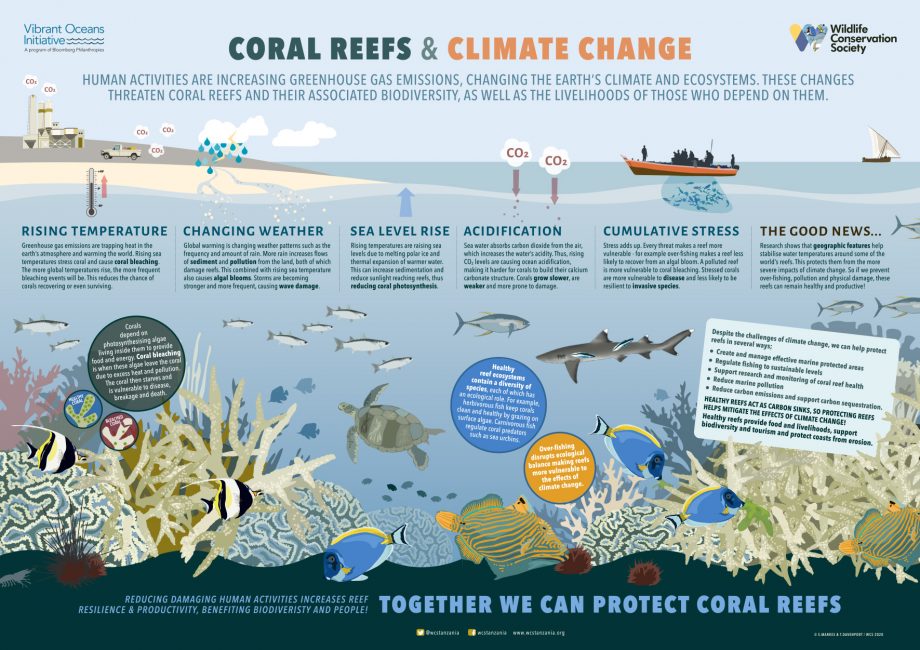
June 8, 2022
Coral Reefs and Climate Change
- as seen by -
 Sarah Markes
Sarah Markes
Human activities are increasing greenhouse gas emissions, transforming the earth’s climate and ecosystems in myriad ways. Some of these changes threaten coral reefs and the vast array of species they support – which in turn threatens the well-being and livelihoods of millions of people who depend on them. Given that many of the world’s reefs are already under pressure from over-fishing and pollution, the additional stresses of climate change can jeopardize their very survival.
The climate change impacts on coral reefs are diverse and cumulative. Rising sea temperatures stress coral and lead to more frequent and sustained coral bleaching. The higher frequency of extreme weather means more wave damage to reefs, and increased run-off from high precipitation, bringing more sedimentation and pollution from land. Ocean acidification weakens corals’ structure, slows their growth, and makes them more prone to damage.
Just as with humans, stresses add up and increase overall vulnerability. For example, in a healthy reef ecosystem, herbivorous fish keep corals clean by grazing on algae. If over-fishing reduces the fish population, and climate change increases sea temperatures, algal blooms are likely to occur more often and have more lasting negative impacts. A reef that is already stressed by pollution from run-off is more likely to suffer from coral bleaching and stressed corals are more vulnerable to disease.
This educational poster was produced to illustrate these issues, outline ways we can help protect reefs, and also highlight some good news. The Wildlife Conservation Society’s research has shown that some reefs around the world have a degree of resilience to the impacts of climate change. For example, unique geographic features in northern Tanzania help keep sea water temperatures lower and more stable than in other coastal areas. This makes the area’s reefs and fisheries more resilient and buys time for local and global conservation measures. WCS is working with coastal communities, local authorities, and government to this end.
For PDF copies of this and other WCS environmental education posters please email sarahindar@gmail.com.
EDITOR’S NOTE: Today is World Oceans Day, a time to remember the major role the oceans have in everyday life and the impact of human actions.
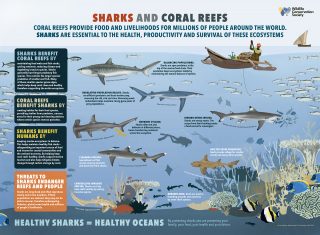
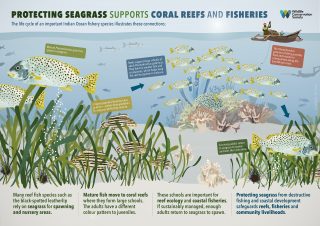
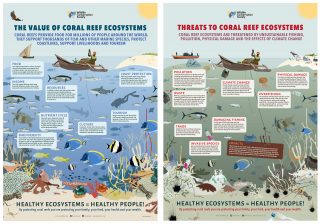
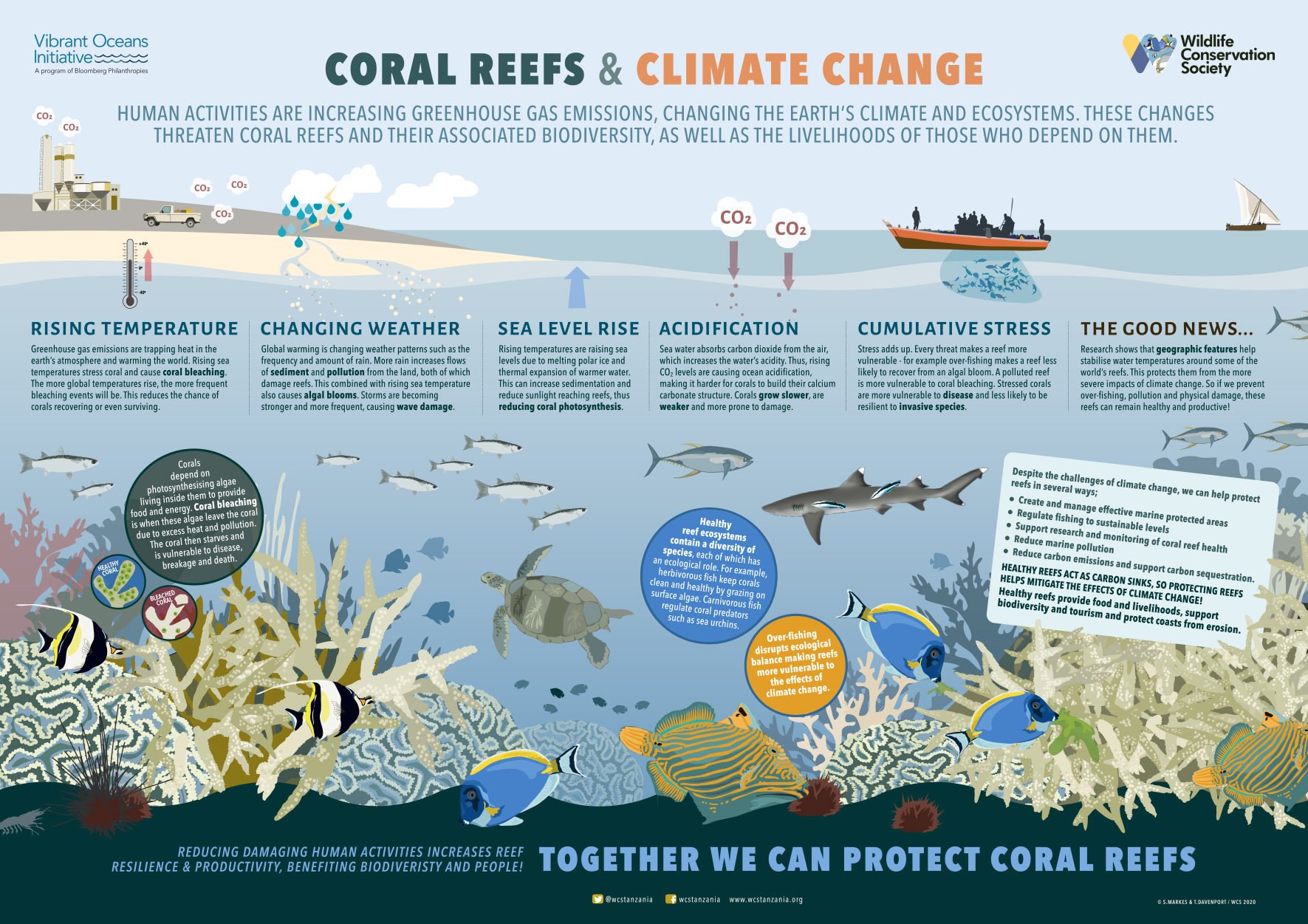
Leave a Comment